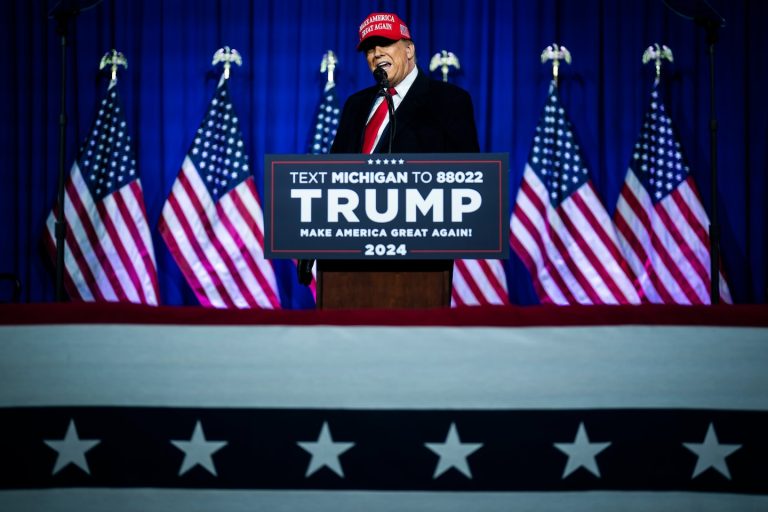Navalny embodied resistance to Putin's regime more than any other Russian opposition figure, and his death at the age of 47 in a concentration camp was seen as a watershed signal that no dissent would be tolerated in Russia as Putin shifts toward a highly centralized and highly repressive totalitarian regime. .
Days before Navalny's death — the cause of which the Russian government has yet to explain — Trump, who has often praised Putin, told a crowd of supporters in South Carolina that he would encourage Russia to do “whatever they want” to any NATO alliance. A member state that is believed to be not paying its due share to the coalition.
These statements sparked controversy in the United States and Europe, as American leaders promised that they would remain committed to NATO allies, and European leaders also expressed concern that a second Trump presidency could erode the alliance.
As The Washington Post reported on Friday, during his four years in office, Trump appears not to have mentioned Navalny's name even once.
After a Russian dissident was poisoned with a banned nerve agent in August 2020, Trump was asked as president how he might respond. He talked about how strictly he dealt with Russia and pointed out that there was no evidence of Russia’s involvement in Navalny’s poisoning.
Navalny, the US State Department and European authorities blamed Russian security forces for the poisoning. Trump never condemned the poisoning, even after Navalny called on him to do so.
Now, Trump's silence on Navalny's death stands in stark contrast to harsh criticism from other American political figures.
President Biden, speaking from the Roosevelt Room of the White House on Friday, said Putin is responsible for Navalny's death.
“What happened to Navalny is further evidence of Putin’s brutality. No one should be fooled,” Biden said.
In a statement on Saturday, former UN Ambassador Nikki Haley, Trump's remaining rival in the Republican presidential primary, confirmed that Trump did not mention Navalny or Putin, and asked whether the former president believed Putin was responsible for Navalny's death.
Speaking to ABC News on Sunday morning, Haley called Navalny a hero and said it was important “to stand with the Russian people who believe Navalny was truly speaking for them.” She said Navalny “was fighting corruption. “He was fighting what Putin was doing.”
“And what did Putin do? He killed him, just like he does with all his political opponents.”
Haley added: “We must remind the American people that Vladimir Putin is not our friend.” “So when you heard Donald Trump say in South Carolina a week ago that he would encourage Putin to invade our allies if they didn't do their best — that's chilling, because all he did in that moment was enable Putin.”
A Trump spokesman did not immediately respond to a request for comment.
The former president's campaign had previously pointed to a post Trump made on his social media site, Truth Social, as his official response to Navalny's death. The post did not mention Putin, Navalny, or the Ukrainian-Russian war. Instead, it baselessly blames Biden for rising rates of “misery, destruction and death” in the world.
That comment is also buried among more than 20 posts Trump made about other issues, including the US border, Haley, multiple criminal investigations he faces, and election poll numbers.
Former Congresswoman Liz Cheney warned that Trump's silence on Navalny should serve as a warning about the kind of presidency Trump will run in if re-elected.
“When you think about Donald Trump, for example, vowing revenge, what Vladimir Putin did to Navalny is what retribution looks like in a country where the leader is not subject to the rule of law,” Cheney said Sunday on CNN’s “State of the United States.” the law”. “Union.” “And I think we have to take Donald Trump seriously. We have to take seriously how far the Putin wing of the Republican Party has now come.”

